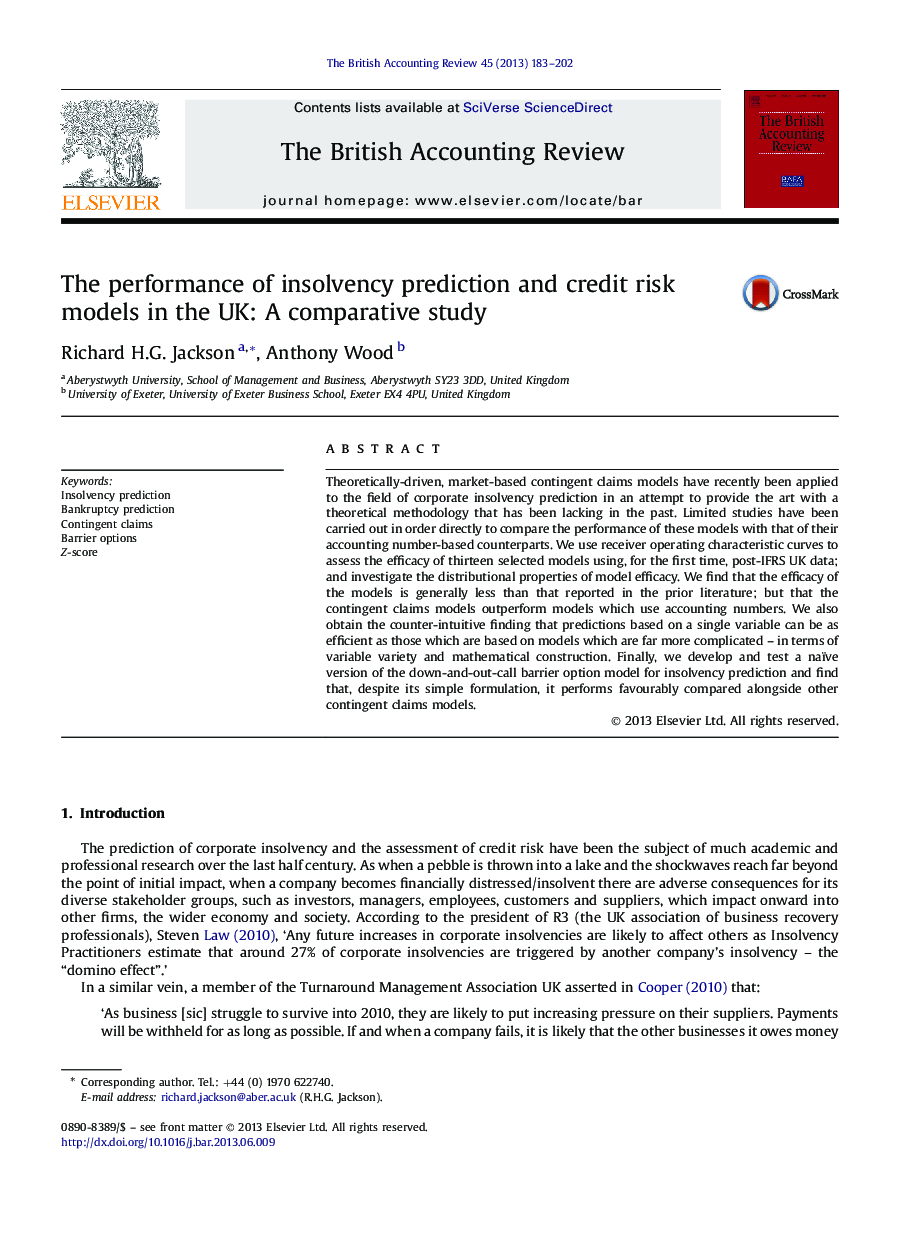| Article ID | Journal | Published Year | Pages | File Type |
|---|---|---|---|---|
| 1003965 | The British Accounting Review | 2013 | 20 Pages |
Theoretically-driven, market-based contingent claims models have recently been applied to the field of corporate insolvency prediction in an attempt to provide the art with a theoretical methodology that has been lacking in the past. Limited studies have been carried out in order directly to compare the performance of these models with that of their accounting number-based counterparts. We use receiver operating characteristic curves to assess the efficacy of thirteen selected models using, for the first time, post-IFRS UK data; and investigate the distributional properties of model efficacy. We find that the efficacy of the models is generally less than that reported in the prior literature; but that the contingent claims models outperform models which use accounting numbers. We also obtain the counter-intuitive finding that predictions based on a single variable can be as efficient as those which are based on models which are far more complicated – in terms of variable variety and mathematical construction. Finally, we develop and test a naïve version of the down-and-out-call barrier option model for insolvency prediction and find that, despite its simple formulation, it performs favourably compared alongside other contingent claims models.
